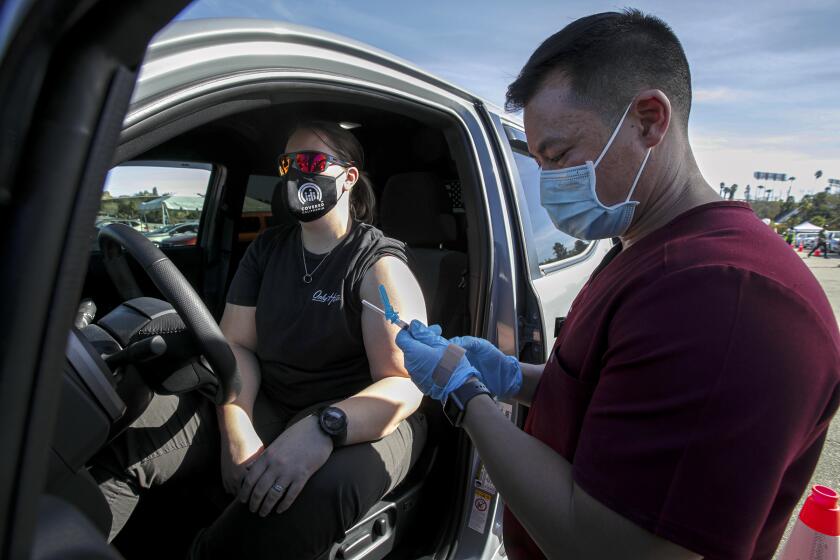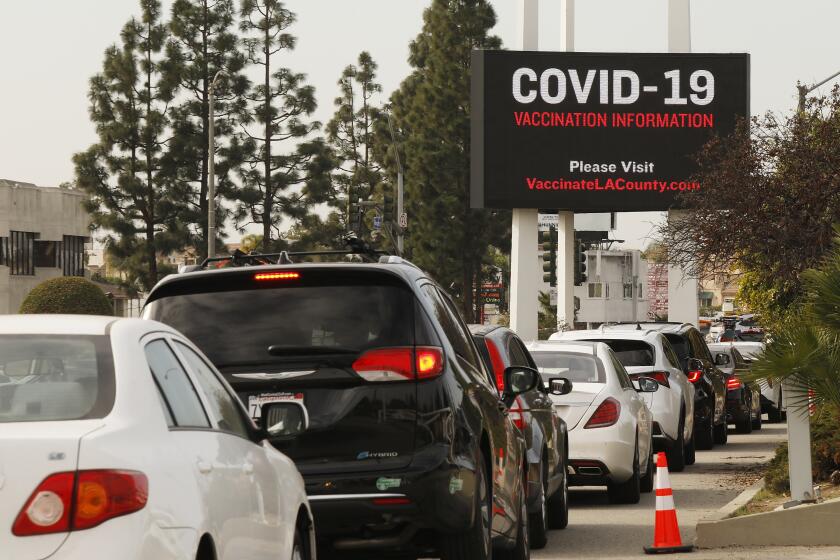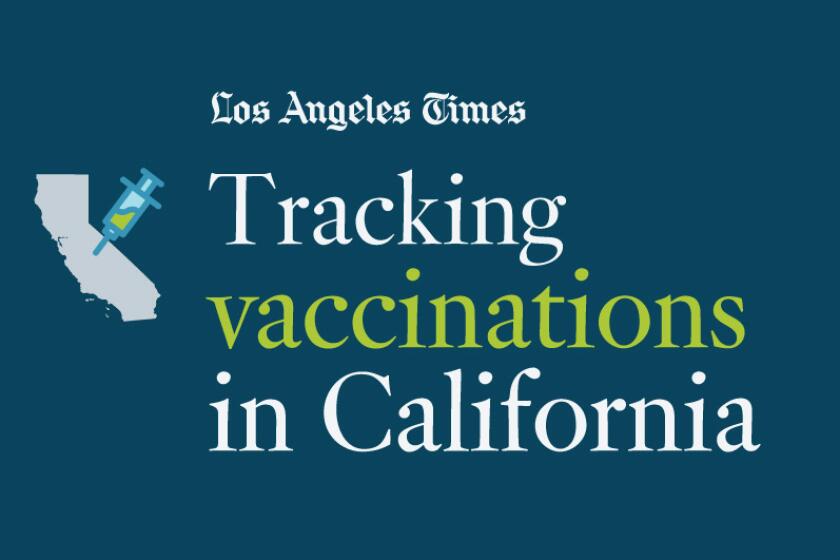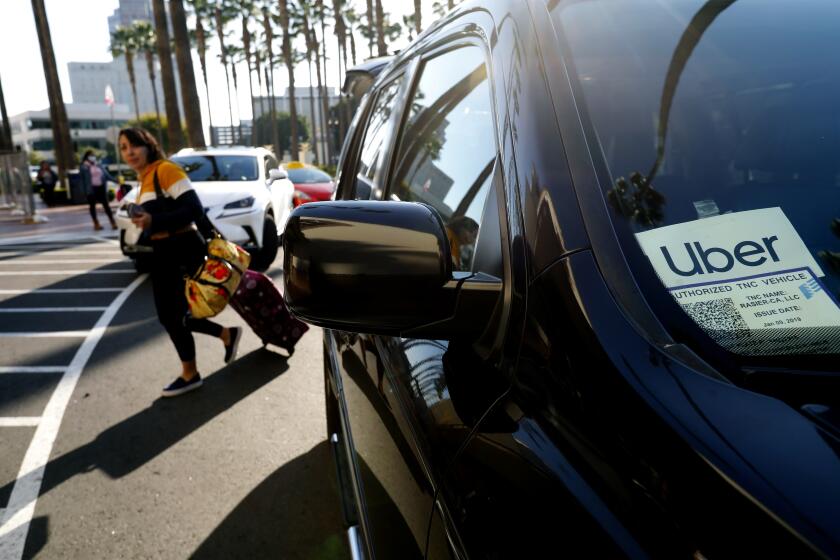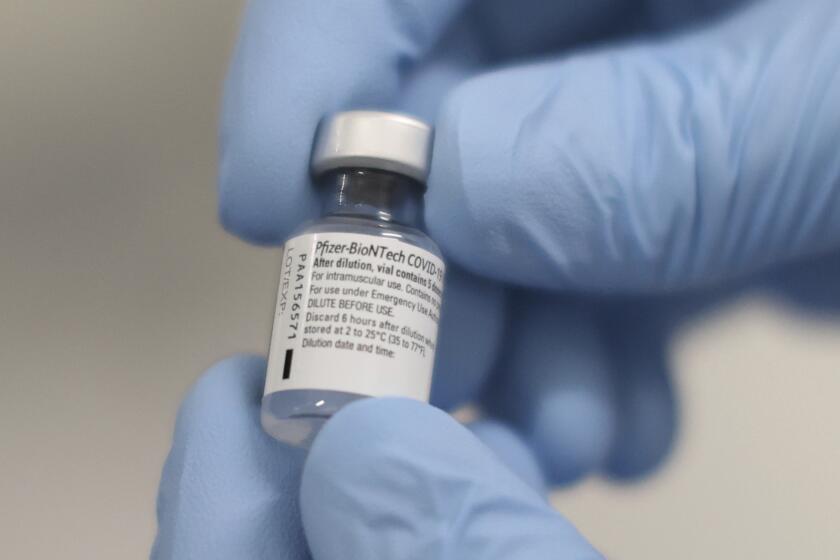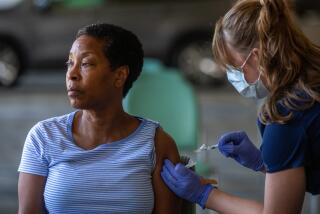Here is how to get a COVID-19 vaccine beginning Monday in California
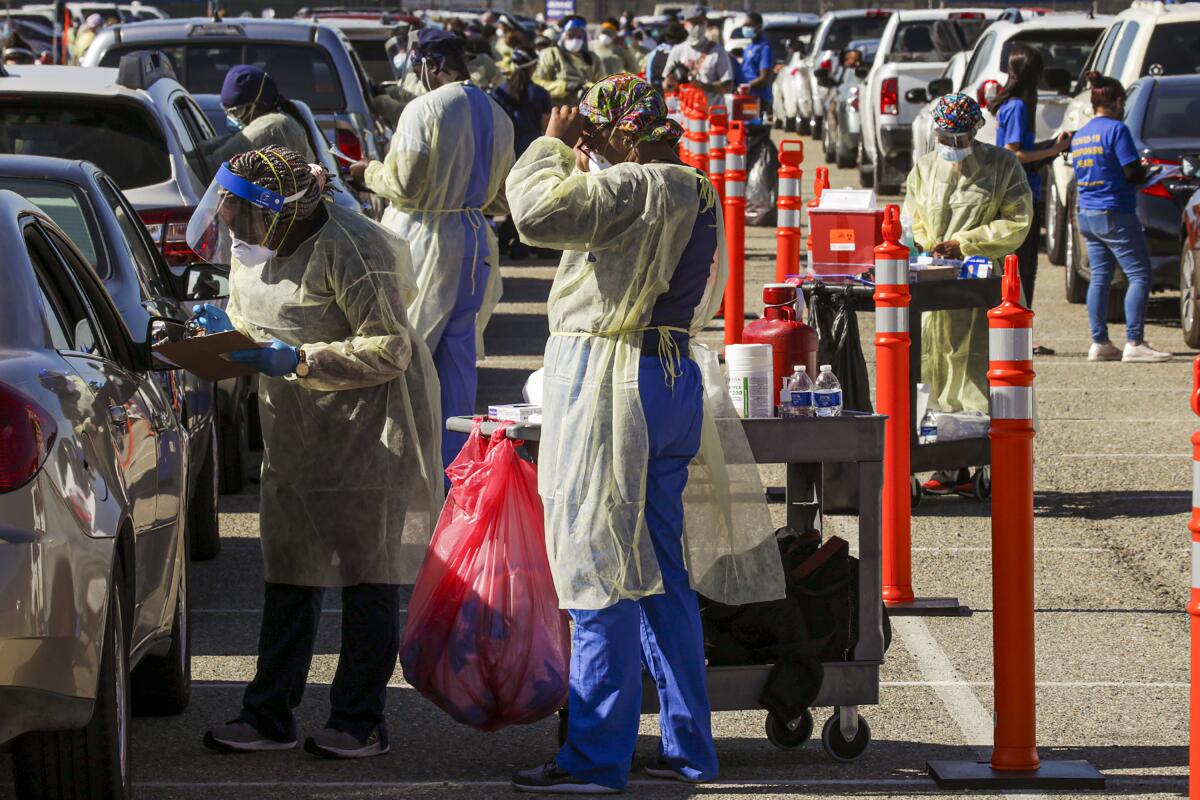
- Share via
Beginning Monday, millions of Californians with preexisting health conditions as well as disabilities will be eligible to sign up for a COVID-19 vaccine.
With a shortage of supplies, however, getting a shot could be difficult.
Here is what you need to know:
California releases details on how millions can get COVID-19 vaccinations beginning Monday
Who is eligible?
People ages 16 to 64 can be eligible if they are deemed to be at the very highest risk to get very sick from COVID-19. The state is also expanding eligibility to people who live or work in incarceration facilities or homeless shelters, as well as public transit workers, including airport workers for commercial airlines. In L.A. County, the entire homeless population will be eligible, regardless of shelter status.
The high-risk group includes 10 categories: people with cancer; chronic kidney disease of Stage 4 or above; chronic pulmonary disease; Down syndrome; compromised immune system from solid organ transplant; pregnancy; sickle cell disease; heart conditions such as heart failure, coronary artery disease and cardiomyopathies (excluding hypertension); severe obesity; and Type 2 diabetes mellitus.
With population estimates for the group at about 4.4. million and with other eligible groups totaling some 13 million, nearly half of all Californians will now be eligible for a vaccine.
The state on Thursday also offered specific examples of people who would qualify for eligibility but are not explicitly listed.
Those include people who use regional centers, independent living centers, in-home supportive services, community-based adult services, Medi-Cal HIV/AIDS waivers, Medi-Cal home and community-based alternatives waivers, Medi-Cal assisted living waivers, all-inclusive care programs for the elderly, California children’s services programs if the client is 16 to 21 years old, and California genetically handicapped persons programs.
The process for getting a COVID-19 vaccine varies county to county.
How do I get a vaccine?
Officials are urging residents to work with their healthcare providers to seek vaccinations as their first step.
“Check first with your usual healthcare provider to see if they have vaccines and available appointments. Healthcare providers who have vaccines may also begin reaching out to you, as a patient with a significant, high-risk medical condition or disability known to the provider, to schedule your vaccine appointment,” the state said.
Other options include local pharmacies, local health departments, community pop-up clinics or using the My Turn website. Access details:
- Online at myturn.ca.gov. The MyTurn website is accessible to people with disabilities and in eight languages: English, Spanish, Tagalog, Vietnamese, Mandarin, Cantonese, Korean and Japanese.
- Calling the COVID-19 hotline at (833) 422-4255 from 8 a.m.- 8 p.m. Monday-Friday or 8 a.m.-5 p.m. Saturday-Sunday.
Experts say about most Americans will need to be vaccinated to bring the coronavirus pandemic under control. Track California’s progress toward that goal.
Will I have to prove I qualify?
The state said people will not be required to prove they have disabilities or health conditions when they go in for vaccinations. Instead, those eligible will be expected to sign a self-attestation confirming they meet the criteria.
“To protect confidentiality, verification documentation of the diagnosis or type of disability is not required, but instead, anyone meeting the eligibility requirements will be asked to sign a self-attestation that they meet the criteria for high-risk medical conditions or disabilities,” the state said.
Disability rights advocates had pressed for a process that would not create unnecessary barriers, especially for those less mobile or who have an intellectual disability, prompted by issues with vaccine line-jumping.
The city is partnering with Uber to offer 15,000 free rides and 20,000 others at half-price to bring South L.A. residents to the new site.
What if I cannot get there on my own?
The state says all vaccination sites should be accessible for those with disabilities.
For transportation help, officials suggest calling your local healthcare provider, health department or pharmacy.
“If you receive Medi-Cal through a managed care plan, contact your plan’s member service department to request assistance for transportation to receive covered benefits,” the state said in its bulletin. “If you receive Medi-Cal through Fee-for-Service (FFS), you can access a list of Non-Medical Transportation (NMT) providers in your county and you can contact them directly to arrange transportation to your appointments. If there is not a provider in your area, the California Department of Health Care Services (DHCS) can assist if you email them DHCSNMT@dhcs.ca.gov.”
COVID-19 vaccines are now being administered to healthcare workers in the U.S. What are your questions about the timeline, the safety or the science?
Is there a list of conditions that qualify?
The California Department of Public Health offered this breakdown:
- Cancer, current with weakened immune system
- Chronic kidney disease, Stage 4 or above
- Chronic pulmonary disease, oxygen dependent
- Down syndrome
- Solid organ transplant, leading to a weakened immune system
- Pregnancy
- Sickle cell disease
- Heart conditions, such as heart failure, coronary artery disease or cardiomyopathies (but not hypertension)
- Severe obesity (body mass index ≥ 40 kg/m2)
- Type 2 diabetes mellitus with hemoglobin A1c level greater than 7.5%
- A COVID-19 infection is likely to result in severe life-threatening illness or death; OR
- Acquiring COVID-19 will limit the individual’s ability to receive ongoing care or services vital to their well-being and survival; OR
- Providing adequate and timely COVID care will be particularly challenging as a result of the individual’s disability.
More to Read
Sign up for Essential California
The most important California stories and recommendations in your inbox every morning.
You may occasionally receive promotional content from the Los Angeles Times.
